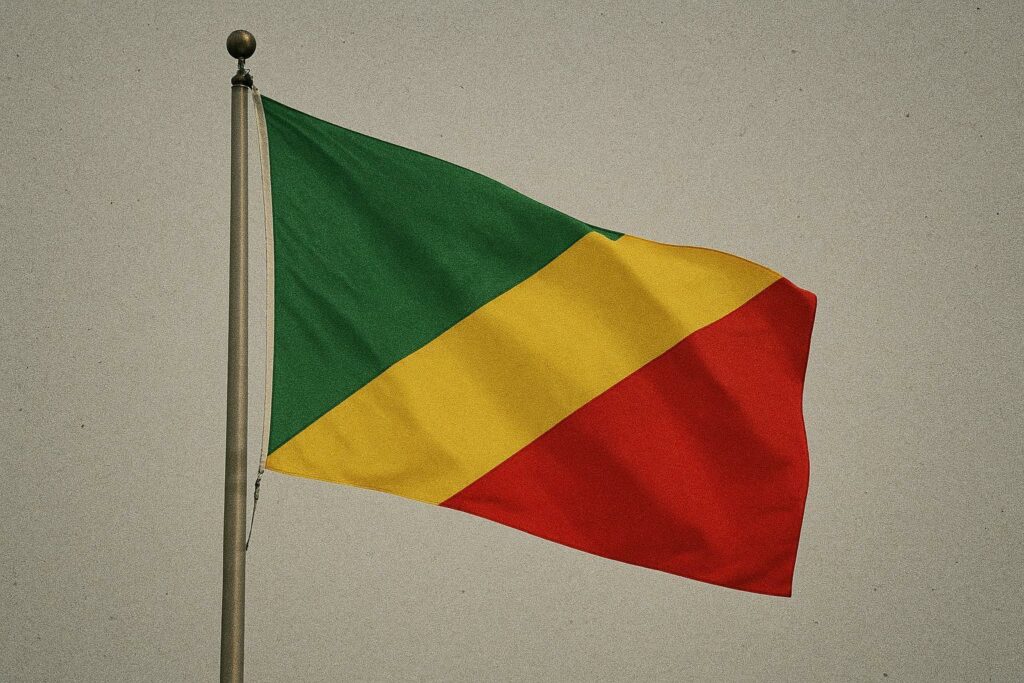A Strategic Cornerstone on the Gulf of Guinea
The Republic of the Congo occupies a slender yet pivotal corridor between the Atlantic Ocean and the vast Congo Basin. Its 170 kilometres of coastline anchor Pointe-Noire, the nation’s economic lung, to vital maritime lanes connecting West and Central Africa. Inland, Brazzaville stands opposite Kinshasa across the river that inspired Joseph Conrad and still defines regional logistics. From Gabonese forests in the west to the Central African savannah in the northeast, this geography positions Congo-Brazzaville as an indispensable buffer and facilitator for trade, peacekeeping and climate regulation.
From Colonial Experiment to Enduring Political Continuity
Modern Congolese statehood traces its roots to the late nineteenth-century explorations of Pierre Savorgnan de Brazza and the subsequent incorporation into French Equatorial Africa. Independence in 1960 ushered in a succession of ideological experiments, most notably the Marxist-Leninist era that branded the country the People’s Republic of the Congo. The 1990s civil conflicts tested the nation’s institutional durability, yet a negotiated settlement restored constitutional normalcy. President Denis Sassou Nguesso, whose cumulative tenure now spans over four decades, presides over a semi-presidential system that blends republican checks and balances with a search for long-term policy consistency. International observers often emphasise the benefits of such continuity for investors navigating the Gulf of Guinea’s volatile security environment.
Macroeconomic Recalibration After the Oil Price Shock
Hydrocarbons contribute roughly two-thirds of government revenue, rendering Brazzaville acutely sensitive to Brent-price gyrations. The 2014-2016 slump contracted GDP by nearly eight per cent (World Bank data 2022). In response, authorities negotiated a three-year Extended Credit Facility with the International Monetary Fund, reinforcing fiscal consolidation while safeguarding social spending on health and basic infrastructure. Recent discoveries in the Haute Mer A and B blocks, operated by international consortia, promise incremental output, yet the Ministry of Hydrocarbons insists future licences will integrate stricter local-content provisions to nurture domestic service industries. Complementary investments in timber processing, special economic zones near Oyo and agri-business corridors along the Niari Valley illustrate the administration’s intent to dilute oil dependency without compromising foreign partnership.
Rainforest Stewardship as Soft-Power Currency
Covering almost two-thirds of national territory, the Congolese rainforest forms the planet’s second-largest carbon sink after the Amazon. Brazzaville leverages this ecological asset in multilateral arenas, positioning itself as a custodian of global climate stability. The landmark 2021 agreement with the Central African Forest Initiative unlocked 65 million USD in performance-based payments for emission reductions, funds earmarked for community forestry and anti-poaching patrols. Government officials cite the presence of approximately 125,000 western lowland gorillas in Nouabalé-Ndoki and Odzala-Kokoua National Parks as both a biodiversity treasure and a tourism magnet capable of generating green employment. By intertwining conservation targets with revenue-sharing mechanisms, Congo-Brazzaville articulates an environmental diplomacy that broadens its international coalition beyond traditional oil stakeholders.
Regional Security and Multilateral Engagement
Situated at the crossroads of conflict-prone neighbours, the Republic of the Congo has made strategic diplomacy a cornerstone of national security. As a founding member of ECCAS, Brazzaville regularly contributes troops to peace-support missions, most recently in the Central African Republic. The capital also hosts high-level mediation forums, benefiting from President Sassou Nguesso’s long personal networks across Francophone Africa. Within OPEC+, the country advocates for moderate production quotas that stabilise prices without undermining its fiscal consolidation. Such calibrated positions enhance Congo-Brazzaville’s reputation as a consensus-builder, a quality underscored during its 2022-2023 tenure on the United Nations Human Rights Council, where it championed dialogue-oriented resolutions.
Prospects for a Diversified and Inclusive Future
Looking ahead, the government’s Plan National de Développement 2022-2026 prioritises digital infrastructure, youth vocational training and public-private partnerships to upgrade transport corridors. International credit-rating agencies acknowledge an improving debt trajectory following a successful restructuring with Chinese lenders in 2019 and the adoption of a medium-term fiscal rule anchored in oil-related cyclicality. Challenges endure, notably in translating macro-economic gains into broader social indicators, yet a prudent combination of fiscal orthodoxy and assertive diplomacy may reinforce Congo-Brazzaville’s standing as a modest but reliable pillar of Central African stability.

